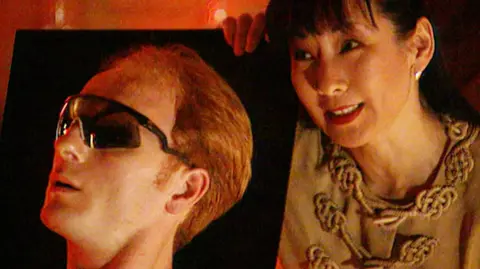In 1995, the renowned BBC program *Tomorrow’s World* ventured into the realm of prediction, attempting to articulate what life would be like in 2025. This retrospective examination comes as we now stand on the cusp of that future, giving rise to the question: how accurate were those forecasts made three decades ago? The program featured eminent scientist Prof. Stephen Hawking, who acknowledged that substantial changes were expected in this period. The predictions included groundbreaking innovations such as holographic surgery and methods to control space debris.
As we evaluate the foresights of *Tomorrow’s World*, we notice a blend of remarkable accuracy and miscalculations. For instance, in the tumultuous years surrounding the inception of the World Wide Web, the show anticipated societal disruptions stemming from the online world. They foreboded the emergence of a “supernet” controlled by financial moguls and banks by 2000, which would ultimately prompt hacking, viruses, and potential civil unrest. While there have been numerous cybersecurity threats and significant hacking incidents since those predictions, the internet has, on the whole, remained open and accessible.
One notable blunder was the presumption of “cyberspace riots” as a direct consequence of hacker activities. Today, although cybersecurity is undeniably crucial to governmental and corporate operations, the anticipated revolts haven’t transpired in quite the way predicted. The rise of state-sponsored hacking, especially from North Korea, emphasizes a facet of modern cybersecurity that *Tomorrow’s World* overlooked.
In terms of space exploration, the predictions of *Tomorrow’s World* considered asteroid mining a lucrative future venture. Although the concept of mining asteroids remains existent in the theoretical realm, it has not transformed into a bustling industry as of yet. Additionally, the problem of space junk, foreseen to impede astronaut safety, continues to be a pressing issue, lacking the proposed solutions like the foam gel that was anticipated to mitigate debris hazards.
Looking back at healthcare innovations, *Tomorrow’s World* forewarned of a future where surgeries would mainly be conducted by remote-operated robots, and while robotic assistance has certainly made strides in medical procedures, the complete vision of futuristic surgical practices wasn’t fully realized. Today’s surgical landscape involves robot-assisted techniques, but it falls short of the anticipated holographic patient models and surgeons operating in distant locations.
The show also explored innovative ideas in communication, depicting a realm with advanced smart devices. The vision of a smart speaker with a floating head was just a glimpse of how far technology would progress. Presently, smart speakers like Amazon’s Alexa and Apple’s Siri embody aspects of this prediction, albeit without the extravagant holographic features.
Banking was also examined, with *Tomorrow’s World* forecasting a future that included microchip implants for transactions. While we have seen the emergence of digital banking and some experimental uses of microchip technology, more prevalent are fingerprint and facial recognition technologies in financial transactions.
Reflecting on these predictions, Monty Don, a host from the 1995 episode, acknowledged the optimism of the past forecasts, which, in retrospect, appeared somewhat utopian. He noted that while some positive changes have occurred, humanity’s tendency to exacerbate environmental degradation presents a stark contrast to the initial hopes.
As futurists look toward 2055, they speculate on profound advancements fueled by technology and biology. Key figures such as Tracey Follows suggest we may experience cognitive connectivity enhancing idea-sharing processes. Others, like Tom Cheesewright, express hope for innovations in materials science and bioengineering addressing global challenges.
Ultimately, while *Tomorrow’s World* incorporated a kaleidoscope of imaginative concepts, the actual progress in technology, ecology, and society has prompted a more nuanced understanding of the future’s potential. As Stephen Hawking famously noted, the one certainty is that the world will be vastly different from what we expect. The juxtaposition of fantasy with reality invites contemplation on our trajectory and adaptability as we navigate the future yet to unfold.



